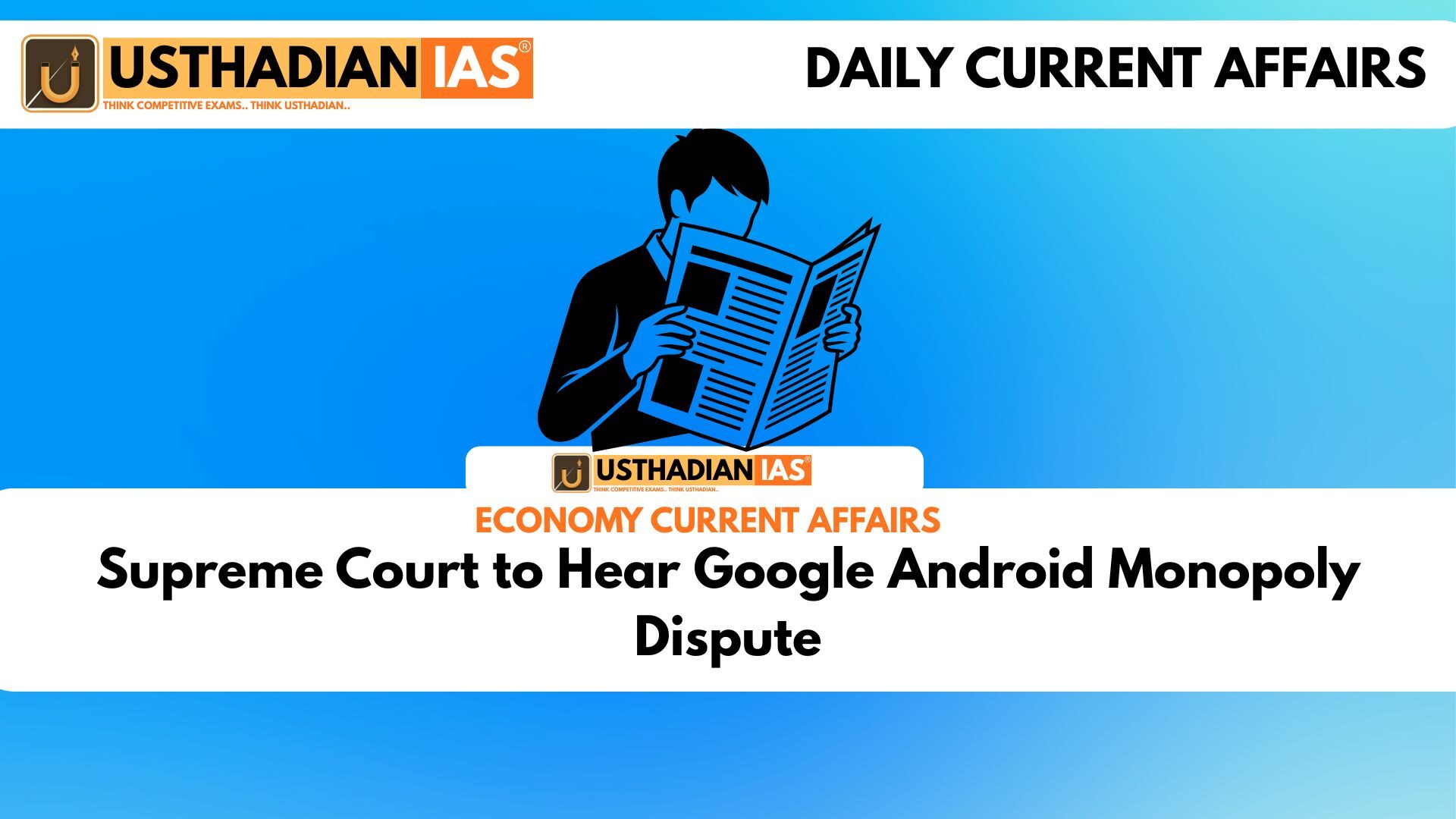Apex court accepts multiple appeals
Supreme Court to Hear Google Android Monopoly Dispute: On 8 August 2025, the Supreme Court of India agreed to hear a set of appeals concerning the Android antitrust matter. These include a challenge by Alphabet Inc. (parent of Google) against the NCLAT decision upholding most findings of the CCI, and petitions filed by both the CCI and the Alliance Digital India Foundation (ADIF). Hearings are slated for November 2025.
Origins of the investigation
The CCI began probing Google in 2020 following complaints from industry bodies and app developers. The allegations claimed Google exploited its market dominance in Android to promote its own services. Developers were allegedly forced to use the Google Play Billing System (GPBS), attracting commission rates between 15% and 30%, while Google-owned YouTube was exempt. Mobile manufacturers were also reportedly required to pre-install Google applications to gain Play Store access.
Static GK fact: The Competition Act, 2002 created the legal framework for establishing the Competition Commission of India in 2003.
CCI’s penalties and orders
The CCI initially levied a penalty of ₹936.44 crore on Google. It directed the company to separate its payment system from Play Store access, ensure transparent handling of billing information, and avoid favouring its own apps over others.
Google’s counterarguments
Google rejected the accusations, emphasising that Android is an open-source operating system and that its policies are designed for safety and user ease. The company said pre-installed apps do not block alternatives, GPBS safeguards transactions, and commission rates follow global standards. The exemption for YouTube was described as stemming from a distinct business model.
NCLAT’s revised decision
In its ruling, the NCLAT upheld significant CCI findings on abuse of dominance but reduced the fine to ₹216.69 crore. It nullified certain behavioural directions but reinstated orders related to billing transparency and data use. Dissatisfaction persisted among all parties, leading them to seek redress in the Supreme Court.
Static GK fact: The National Company Law Appellate Tribunal, created in 2016, hears appeals from the CCI and the NCLT.
Impact on India’s digital landscape
This case could redefine the regulatory framework for technology platforms in India. If the CCI’s stance is upheld, it could widen payment choices for developers, lower user costs, and improve privacy measures. Critics caution that changes might disrupt the Android user experience across devices.
Relevance for startups and global policy
For Indian startups, the matter represents a significant opportunity to challenge the market power of Big Tech. ADIF asserts that Google’s payment rules favour its own services and limit competition. A ruling against Google in India could prompt similar challenges and reforms in other jurisdictions.
Static GK Tip: Android powers over 95% of smartphones in India, giving this verdict nationwide significance.
What lies ahead in the Supreme Court
The upcoming hearing will shape how Indian competition law addresses platform-based monopolies. The decision will influence innovation, digital rights, and the broader technology ecosystem.
Static Usthadian Current Affairs Table
Supreme Court to Hear Google Android Monopoly Dispute:
| Topic | Detail |
| Case admitted by Supreme Court | 8 August 2025 |
| Key parties | Google, CCI, ADIF |
| Original CCI penalty | ₹936.44 crore |
| Reduced penalty by NCLAT | ₹216.69 crore |
| Start of CCI investigation | 2020 |
| Alleged violation | Abuse of dominance in Android market |
| Core issue | Google Play Billing System commissions |
| Supreme Court hearing month | November 2025 |
| Android market share in India | Over 95% smartphones |
| Establishment year of CCI | 2003 |








